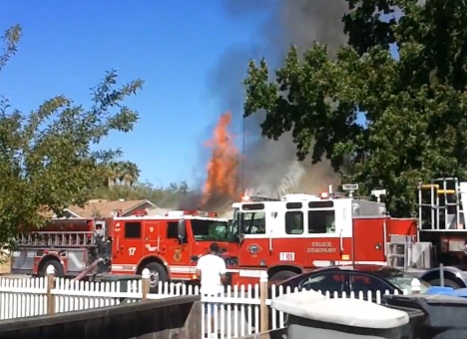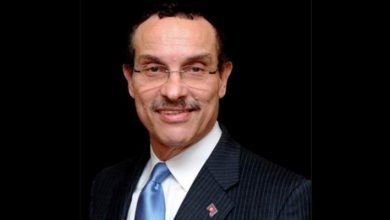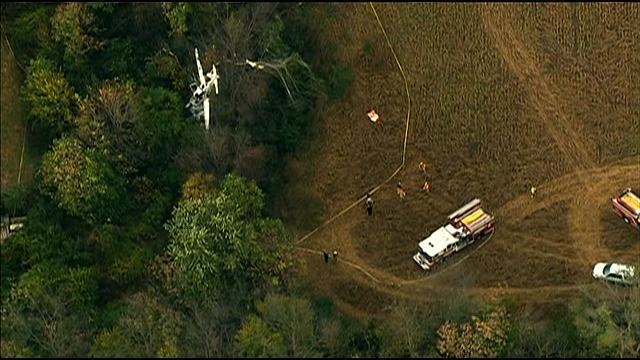NEW: DC 911 abandons emergency radio channel for 20 minutes
911 head taking action against dispatchers who leave radios unanswered
Looking for a quality used fire truck? Selling one? Visit our sponsor Command Fire Apparatus
For 20-minutes, DC 911 failed to answer an emergency radio channel. Eight separate times DC Fire & EMS units handling emergency medical calls tried to reach a dispatcher early on July 19. No dispatcher answered. In the recording above from OpenMHz.com you’ll hear the voice of a dispatcher at 5:00 am. A dispatcher is not heard again on the channel until 5:20.
This is at least the 17th time in as many months that a radio channel was abandoned for minutes at a time by dispatchers at DC’s Office of Unified Communications (OUC). It was also the longest episode of radio silence. In addition, while working to learn more about this incident, I discovered yet another case last Thursday — number 18.
It’s hard to understand how a 911 center can regularly fail at such a crucial part of its mission — answering the radio when firefighters, EMTs and paramedics call. In more than 50-years of regularly monitoring emergency radio traffic and four years working as a fire department dispatcher I’ve never heard of a situation like this. Last year, STATter911 documented incidents where dispatchers failed to answer the radio when an ambulance crew needed immediate police assistance, when help was needed for a patient in cardiac arrest and while firefighters were trying to coordinate with police during a shooting response.
OUC’s interim director confirmed the July 19 incident occurred and is being investigated. Cleo Subido’s emailed response also verifies it’s a chronic problem that she’s addressing. Subido wrote, “I want you to know that as I have said in public as well as the performance hearings, this is a dealbreaker and absolutely unacceptable. This is one of the reasons I monitor radio channels and look for things like this so that we can address them and everybody can see we’re going to address them with clear and consistent disciplinary action.”
In a July 16 email to staff Subido warned about having to find out about these failures from outside sources — like STATter911 — rather than through the chain of command:

While Subido already knew about the July 19 incident by the time I requested information, she was unaware of the one last Thursday. In that case (audio below) Engine 4 was on a medical call at a construction site. The engine company’s officer attempted to radio for additional fire units, Engine 4 needed help to get the victim to street level from 20-feet below grade in the construction area near Sherman Avenue and Harvard Street, NW. Engine 4 called three separate times on the radio but got no response. Engine 4 finally switched to another radio channel where a dispatcher answered. There were four other radio transmissions not answered on that channel during the same time. When a dispatcher finally responded he said, “I’m with IT and they’re trying to fix the system.” Subido wrote that this one had not been brought to her attention internally. Subido has not yet verified the dispatcher’s citing of a technical problem resulting in the channel going unanswered.
Subido’s handling of these incidents is in stark contrast to her predecessor, Karima Holmes. Holmes didn’t respond when STATter911 asked about a dozen such incidents on her watch between February and December last year. In March of 2020, when WTTG-TV/FOX5 reporter Evan Lambert followed up on one of the incidents, he received a cryptic reply that it was a “technical error”. A year later, Cleo Subido painted a very different picture when asked at a DC Council oversight hearing about these radio silence issues. Subido described multiple common mistakes made by dispatchers that result in radio channels left unmonitored (below)
STATter911 asked Subido if the same problem is occurring with dispatchers on the police side. Here’s her response:
To answer your other questions, it has happened on rare occasion on the police side, but it’s never anything more than a short interval and it’s handled immediately. I haven’t ever had to discipline anyone, since I’ve been here, on the MPD side for this action. So a couple of things are happening in order to help prevent this. We are no longer allowing the dispatchers to move their assigned seating before and after breaks. There used to be a rotation where you would sit in the same place but you would punch out channels. They are not allowed to do that anymore. We have assigned channels that are always in the same seat and they are responsible to move their seat when they give breaks. etc.
Subido believes that being consistent, transparent and quick on disciplinary action about radio channels that aren’t monitored is starting to get this issue under control.
As Subido outlined in the July 16 staff email, there are a lot of serious and long-standing workplace issues at OUC that she’s attempting to correct. Some of them are very basic, like showing up for work, working for the entire shift and following orders.
Subido’s candor and transparency remain a refreshing change. Let’s hope it translates into meaningful and long-term improvements at DC 911.





